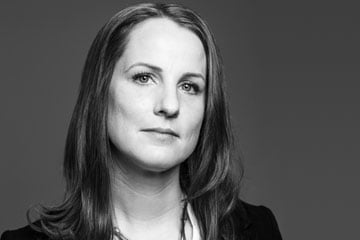
A Toronto law firm will be removing names from hundreds of applications it receives from law students hopeful to land a summer position at the firm in an effort to promote more diverse recruitment.

A Toronto law firm will be removing names from hundreds of applications it receives from law students hopeful to land a summer position at the firm, in an effort to promote more diverse recruitment.
Shara Roy, a partner and co-head of the student committee at Lenczner Slaght Royce Smith Griffin LLP in Toronto, says about 450 to 600 second-year law students from across Canada apply to be summer students at the firm each year.
This year, the firm will use software to remove names from applications so those reviewing the materials will be taking part in “name-blind screening.”
After the initial round of applications, the firm typically sets up about 180 on-campus interviews with students who express interest in working at the firm, and, ultimately, it hires five to eight of them to work at the firm.
The move to remove names from applications is to try to improve diversity at the firm, says Roy, as well as encourage other firms to consider the practice.
“We really strongly believe that, with diverse students in a diverse firm, we’ll do better as a firm and we’ll be able to better serve our clients, and it has the added benefit of just being the right thing to do,” she says.
The practice of name-blind hiring has been adopted by some companies, including U.K. law firm Clifford Chance, in an effort to curb unconscious bias.
Roy believes Lenczner Slaght will be the first firm in Canada to use name-blind screening as part of its student hiring.
“We want to take a stand. We want to be a leader on this,” she says.
In addition to using the software, there will be a person who will double-check each application manually to ensure the names are removed.
All interviewers and resumé reviewers have already received unconscious-bias training, says Roy.
“The blinding of the names, we thought, would be a good initiative to address unconscious biases that are reported not within our firm but generally with respect to people who are reviewing resumés,” she says.
After those reviewing the application have determined if the person is selected for an on-campus interview, then the applicant’s name will be added back.
The move comes after a large debate about the promotion of diversity in the profession, such as the one that took place at the Law Society of Ontario over whether lawyers should be required to sign a statement of principles.
Roy says the firm’s move to remove names is not in direct response to that issue but that the firm wants to make its efforts known.
Lenczner Slaght has almost 60 lawyers, she says, and its size means it’s well suited to be “nimble” in changing its hiring procedures.
“[O]ur reputation is strong enough to hopefully be a leader in the area,” she says.
Roy says students are hired to work at the firm from May to August, and many return to the firm later as articling students. She did not have an estimate of what implementing the change will cost.
“If this works for us — and we’re measuring success this year by, ‘Can we actually accomplish it? Can it be done?’ — we’re hoping that if the answer to that is yes, and we’re hopeful the answer is yes, that the next step is to drive either other individual firms to follow our lead or perhaps lead a wider change,” she says.
Roy notes that names are the only part of the application that will be removed. Other identifying information will not be removed.